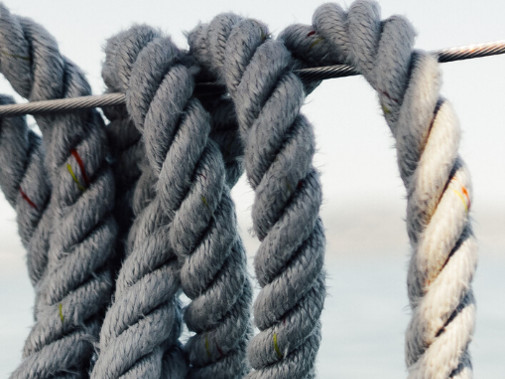
Offshore aquaculture is a promising sector, boosting employment, economic stability and growth in Europe, especially in rural and coastal areas. However, the use of ropes made from 100% petrol-based (non-biodegradable) plastic threatens marine ecosystems.
In view of the growing demand of the sector, the choice of environmentally-friendly material for ropes and their correct disposal is of paramount importance.
BIOGEARS project aims to provide the European aquaculture with innovative bio-based ropes that are durable, marketable and fit-for-purpose, biodegradable in a shorter time and which can be sustainably managed by local composting facilities. A solution suitable for contributing to a more sustainable and eco-friendly aquatic farming.
The consortium, made of 5 partners located in 3 different countries, developed prototypes of biogears for use in mussel and seaweed culture in an Integrated Multi-Trophic Aquaculture (IMTA) approach. These bio-based ropes, finalised in June 2021, have been tested in the Atlantic sea basin and in different environmental conditions. Click here to display their article and the photos about this important milestone.
BIOGEARS project will have a positive impact by:
- Improving the sustainability of the aquaculture industry;
- Supporting a circular economy through the development of new bio-based products and value chains;
- Supporting public policies to reduce plastic littering at sea, but also fostering new employment, quality products and responsible production and consumption.
The project also developed an interdisciplinary ‘Blue Lab’ to track innovation related to new bio-based materials, to support replicability, transferability and scale up into different European regions.
BIOGEARS is engaging with entities along the whole bio-based value chain and key stakeholders including aquaculture industry (mussel and seaweed producers), materials producers for marine applications (including fibres), yarn and textile producers, rope manufacturers and distributors, regulatory bodies and authorities involved in standards and certifications, policy makers, research institutions and academics, and wider public and consumers.
To have a better view of the innovative idea behind this project, watch the Euronews Ocean episode "Reducing plastic in fishing and aquaculture: what alternatives to protect our oceans?".
- Reference
- EMFF-BlueEconomy-2018-863708
- Project duration
- 1 Nov 2019 - 30 Apr 2023
- Project locations
- Spain
- Overall budget
- €1 179 020
- EU contribution
- €943 77680% of the overall budget
- Project website
- BIOGEARS
Stakeholders
Coordinators
AZTI - Ciencia y tecnología marina y alimentaria (Spain) (AZTI)
- Website
- https://www.azti.es/
Participants
ERINN Innovation (Ireland)
- Website
- https://erinn.eu/
ITSASKORDA SL (Spain)
- Website
- https://www.itsaskorda.es/
Centre scientifique & technique de l'industrie textile belge (Belgium) (CENTEXBEL)
- Website
- https://www.centexbel.be/en
